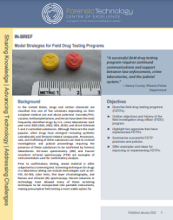Enhanced Raman Scattering as a Probe for 4-Mercaptopyridine Surface-modified Copper Oxide Nanocrystals
Journal
Analytical Sciences
Date Published
2007
Agencies
NIJ-Sponsored
Publication Type
Research (Applied/Empirical)


